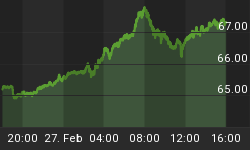Recent high profile bankruptcies of mainstay American retailers, such as The Sharper Image and Linens 'n Things, as well as the proposed mergers between Blockbuster/Circuit City and Delta/Northwest, and the admissions from the nation's leading student lenders that their business models are no longer viable, mark the beginning of a long overdue overhaul of the American economy. In short, the economy will be getting smaller and more expensive.
The success of all of these seemingly disparate sectors depends, to a large extent, on the ability of Americans to continue to borrow cheaply and easily. Now that home equity extractions and zero interest credit card rollovers can no longer be used to fund electronics purchases, vacations or tuition, those corresponding sectors are suffering. The foundation of our bloated service sector economy, supported by overseas savings and production, is now giving way.
This diminished capacity will result in a wave of bankruptcies and consolidations to restore profitability in what will become a much smaller service sector. The days of cheap consumer goods at Wal-Mart and cheap airfares at Jet Blue are coming to an end. It is all part of the process of an unprecedented decline in America's standard of living, which is the inevitable result of years of living beyond our means.
For retailers, the business model of selling cheap foreign imported goods to over- leveraged Americans was doomed from the start. It is fitting that just prior to the collapse, Wall Street private equity firms decided to jump aboard a sinking ship (Linens 'n Things was purchased by the Apollo Group for $1.3 billion back in 2006). No doubt the added debt subsequently piled on to the firm by the profit-squeezing buy out boys hastened the company's demise. As revenues decline and debt servicing costs rise for many retailers (who have been similarly hog-tied by private equity firms), look for additional blow-ups down the road.
As the dollar continues its historic decline, imported goods will become too costly for many Americans. In addition, more of those products still made (or more likely grown) here will be exported to wealthier foreign consumers whose appreciated currencies increase their purchasing power. As a result, fewer products will be available to fill our shelves and those that remain will carry much higher price tags.
In addition, as defaults on credit and store charge cards continue to increase, the market for such debt will soon disappear. As a result, the credit crunch will spread from subprime mortgages to all forms of consumer credit. Therefore, not only will Americans be staring at higher prices, but they will have to pay in cash.
Similarly, the coming airline consolidation will usher in a harsher era for the American airline industry. In truth, given the rising costs of building, flying and servicing aircraft, U.S. carriers currently supply more planes and passenger miles than American consumers can afford to utilize. While this may seem illogical in a time when domestic flights are usually fully booked, it is important to realize that these crowded planes do not translate into profit at current ticket prices. While mergers may help the airlines hold down costs for a bit, the only lasting pathway to profit is fewer flights and significantly higher ticket prices. Of course, this will mean that Americans of modest means will travel less by air. Unfortunately, that fact is simply an inevitable consequence of a sagging currency and diminishing national wealth.
Although many Americans have come to regard affordable air travel as a birth right, from a global perspective it remains the province of the wealthy. The massive borrowing that has financed the American economy for generations, combined with an evaporating industrial base and a lack of domestic savings have combined to lower American's wealth in comparison to the rest of the world. Consequently, as more materials, technicians and jet fuel go to service the burgeoning Asian air travel industry, the higher the costs will become for American travelers. As with other hallmarks of a diminished standard of living, Americans now have to confront the reality of staying closer to home.
The same mathematics will come into play for our ridiculously expensive higher education system, which can not exist without a well lubricated loan infrastructure. Limit the ability of students to take on heavy loans, and college education becomes untouchable for anyone but the wealthiest Americans. If loans dry up, universities will be forced to slash their bureaucracies and substantially reduce tuitions. Ironically the silver lining here is that with low tuitions students will no longer need the loans that kept tuitions so high in the first place.
For a more in depth analysis of our financial problems and the inherent dangers they pose for the U.S. economy and U.S. dollar denominated investments, read my new book "Crash Proof: How to Profit from the Coming Economic Collapse." Click here to order a copy today.
More importantly, don't wait for reality to set in. Protect your wealth and preserve your purchasing power before it's too late. Discover the best way to buy gold at www.goldyoucanfold.com, download my free research report on the powerful case for investing in foreign equities available at www.researchreportone.com, and subscribe to my free, on-line investment newsletter at http://www.europac.net/newsletter/newsletter.asp.















